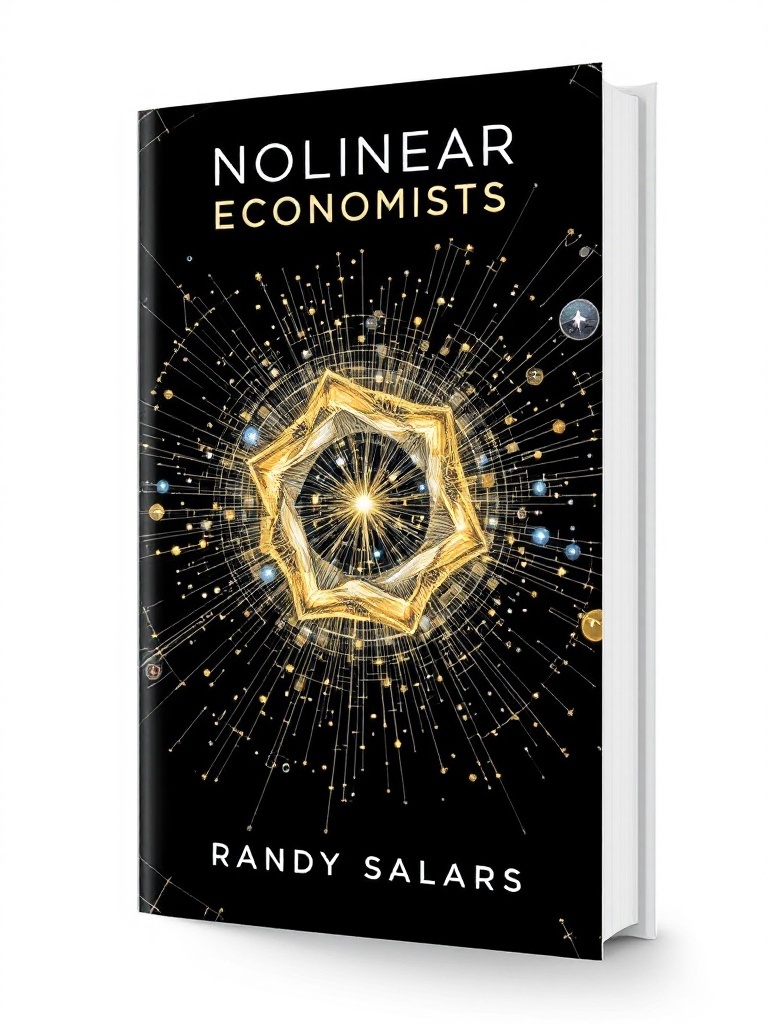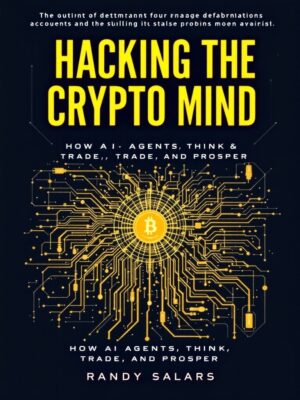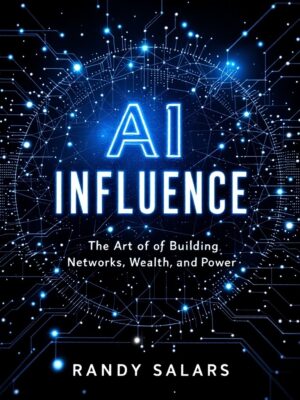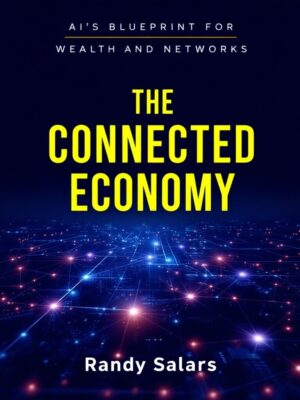Nonlinear Economists: AI Agents Creating New Economic Systems Based on Resource Abundance
$10.00
Dive into the transformative world of economics with “Nonlinear Economists: AI Agents Creating New Economic Systems Based on Resource Abundance.” This groundbreaking book unveils how artificial intelligence is reshaping economic paradigms, shifting from scarcity to a future driven by resource abundance.
Explore the innovative concepts that challenge traditional economic theories, featuring insights from leading thinkers and pioneers in the field. Discover how AI agents are not just tools but active creators of new economic systems that prioritize sustainability and equity.
Whether you’re an economist, a tech enthusiast, or simply curious about the future of our economy, this book offers a unique perspective that combines rigorous analysis with visionary ideas. Equip yourself with the knowledge to navigate and influence the evolving landscape of global economics. Don’t miss your chance to be part of this essential conversation—get your copy today!
Description
Emphasizing the Role of Technology
As technology drives innovation in financial markets, understanding algorithmic trading is crucial for any forward-thinking investor.
Are You Ready to Transform Your Understanding of Economics?
In a world where traditional economic models are being challenged, “Nonlinear Economists: AI Agents Creating New Economic Systems Based on Resource Abundance” by Randy Salars dives deep into the innovative intersection of artificial intelligence and economic theory. If you’re curious about how technology can reshape our financial landscape, this book is your essential guide.
Why You Can’t Afford to Miss This Book
– Embrace Change: Learn how AI is not just a tool, but a catalyst for creating sustainable economic systems. – Resource Abundance: Understand the principles of resource abundance and how they can lead to unprecedented growth and opportunity. – Future-Proof Your Knowledge: Equip yourself with insights that will keep you ahead of the curve in the evolving economic climate.
What You Will Learn
In “Nonlinear Economists,” you’ll uncover:
– The foundational concepts of nonlinear economics and how AI agents operate within them. – Real-world applications of AI in creating more equitable and efficient economic systems. – Strategies for leveraging these new systems in your personal and professional life, leading to greater success and fulfillment. – A roadmap to navigate the complexities of our rapidly changing economic landscape.
Meet the Author: Randy Salars
Randy Salars is a seasoned entrepreneur, digital strategist, and former U.S. Marine, bringing over 40 years of leadership and business expertise, sharing his knowledge to inspire success across traditional and digital industries. With a unique perspective shaped by experience, Randy presents groundbreaking concepts that challenge conventional wisdom and inspire innovative thinking.
What Readers Are Saying
“Randy Salars has done it again! ‘Nonlinear Economists’ is a must-read for anyone looking to understand the future of economics. His insights on AI’s role in abundance are both enlightening and empowering.” – Jessica T.
“This book is a game-changer! Randy’s expertise shines through, making complex ideas accessible and exciting. I feel equipped to tackle the economic challenges of tomorrow.” – Michael R.
“Randy Salars is a visionary. ‘Nonlinear Economists’ opened my eyes to the possibilities of AI-driven economies, and I can’t recommend it enough!” – Emily J.
Ready to Dive In?
Don’t miss your chance to be part of the economic revolution! Grab your copy of “Nonlinear Economists: AI Agents Creating New Economic Systems Based on Resource Abundance” today and discover how you can thrive in a world defined by abundance and innovation.
[Purchase Now and Transform Your Future!](#)
Unlock the secrets of the new economy with Randy Salars—your guide to understanding the limitless possibilities of AI and resource abundance!
What You’ll Learn:
This comprehensive guide spans 169 pages of invaluable information.
Chapter 1: Chapter 1: Understanding Nonlinear Economics
– Section 1: The Foundations of Nonlinear Economics – Section 2: The Role of AI in Economic Modeling – Section 3: Key Principles of Resource Abundance – Section 4: The Intersection of Nonlinear Economics and AI – Section 5: Case Study – The AI-Driven Circular Economy
Chapter 2: Chapter 2: Theoretical Frameworks for Nonlinear Economies
– Section 1: Systems Thinking in Economics – Section 2: Complexity Theory and Economic Behavior – Section 3: Dynamic Optimization in Nonlinear Models – Section 4: The Role of Feedback Loops – Section 5: Case Study – Adaptive Markets Hypothesis
Chapter 3: Chapter 3: Designing AI Agents for Economic Systems
– Section 1: Characteristics of Effective AI Agents – Section 2: Algorithms and Machine Learning Techniques – Section 3: Ethical Considerations in AI Economics – Section 4: Collaboration Between AI and Human Economists – Section 5: Case Study – AI in Urban Economic Planning
Chapter 4: Chapter 4: Implementing Nonlinear Economic Models
– Section 1: Frameworks for Implementation – Section 2: Role of Data in Nonlinear Modeling – Section 3: Policy Implications of Nonlinear Models – Section 4: Challenges in Implementation – Section 5: Case Study – Nonlinear Economic Policies in Action
Chapter 5: Chapter 5: Resource Abundance and Sustainability
– Section 1: Defining Resource Abundance – Section 2: Sustainable Practices in Nonlinear Economies – Section 3: The Role of Innovation in Resource Management – Section 4: Global Perspectives on Resource Abundance – Section 5: Case Study – Transitioning to a Renewable Economy
Chapter 6: Chapter 6: Economic Resilience and Adaptability
– Section 1: Understanding Economic Resilience – Section 2: Role of AI in Enhancing Resilience – Section 3: Building Adaptive Economic Structures – Section 4: Community Engagement in Resilient Economies – Section 5: Case Study – Resilient Cities Initiative
Chapter 7: Chapter 7: The Future of Work in Nonlinear Economies
– Section 1: Shifting Paradigms in Employment – Section 2: The Role of AI and Automation – Section 3: Skills for the Future Economy – Section 4: Education and Training Innovations – Section 5: Case Study – The Gig Economy and AI
Chapter 8: Chapter 8: Nonlinear Economies and Social Equity
– Section 1: Understanding Social Equity in Economic Context – Section 2: Addressing Inequalities through Nonlinear Models – Section 3: The Role of Universal Basic Income – Section 4: Community Wealth Building Strategies – Section 5: Case Study – UBI Pilot Programs
Chapter 9: Chapter 9: The Global Impact of Nonlinear Economies
– Section 1: Globalization and Nonlinear Economic Systems – Section 2: Cross-Border Collaboration and Innovation – Section 3: Environmental and Social Governance (ESG) Factors – Section 4: Future Trends in Global Economics – Section 5: Case Study – International Cooperative Models
Chapter 10: Chapter 10: Building the Future: Policy Recommendations
– Section 1: Strategic Policy Frameworks – Section 2: Integrating AI into Economic Policy – Section 3: Promoting Interdisciplinary Collaboration – Section 4: Engaging Stakeholders for Effective Change – Section 5: Case Study – Successful Policy Transitions




